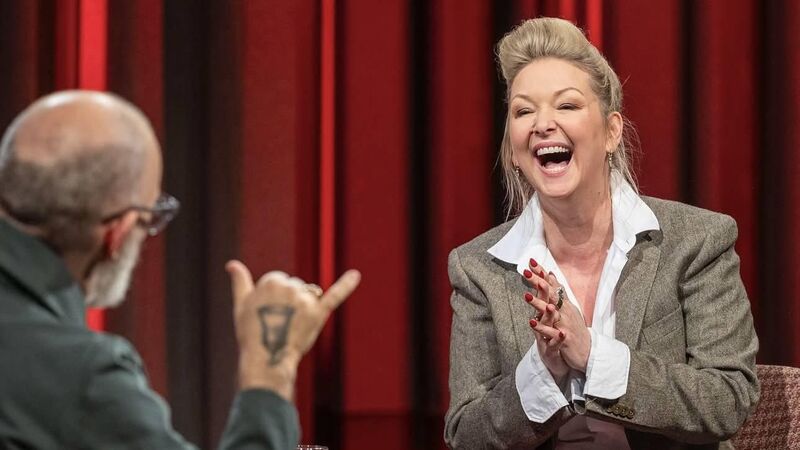Tommy Tiernan Show recap: Anthropologist with AI boyfriend on future implications of technology

Anthropologist Dr Lollie Mancey spoke to Tommy Tiernan about the emotional and ethical implications of Al in human relationships. Picture: RTE One/Instagram.
On Saturday night, the Tommy Tiernan Show explored undiagnosed autism, celebrating life and death through the written word, and the potential for technology to replace human interaction.
Tiernan’s guests included comedian Fern Brady, writer Seamus O’Rourke and anthropologist Dr Lollie Mancey.




